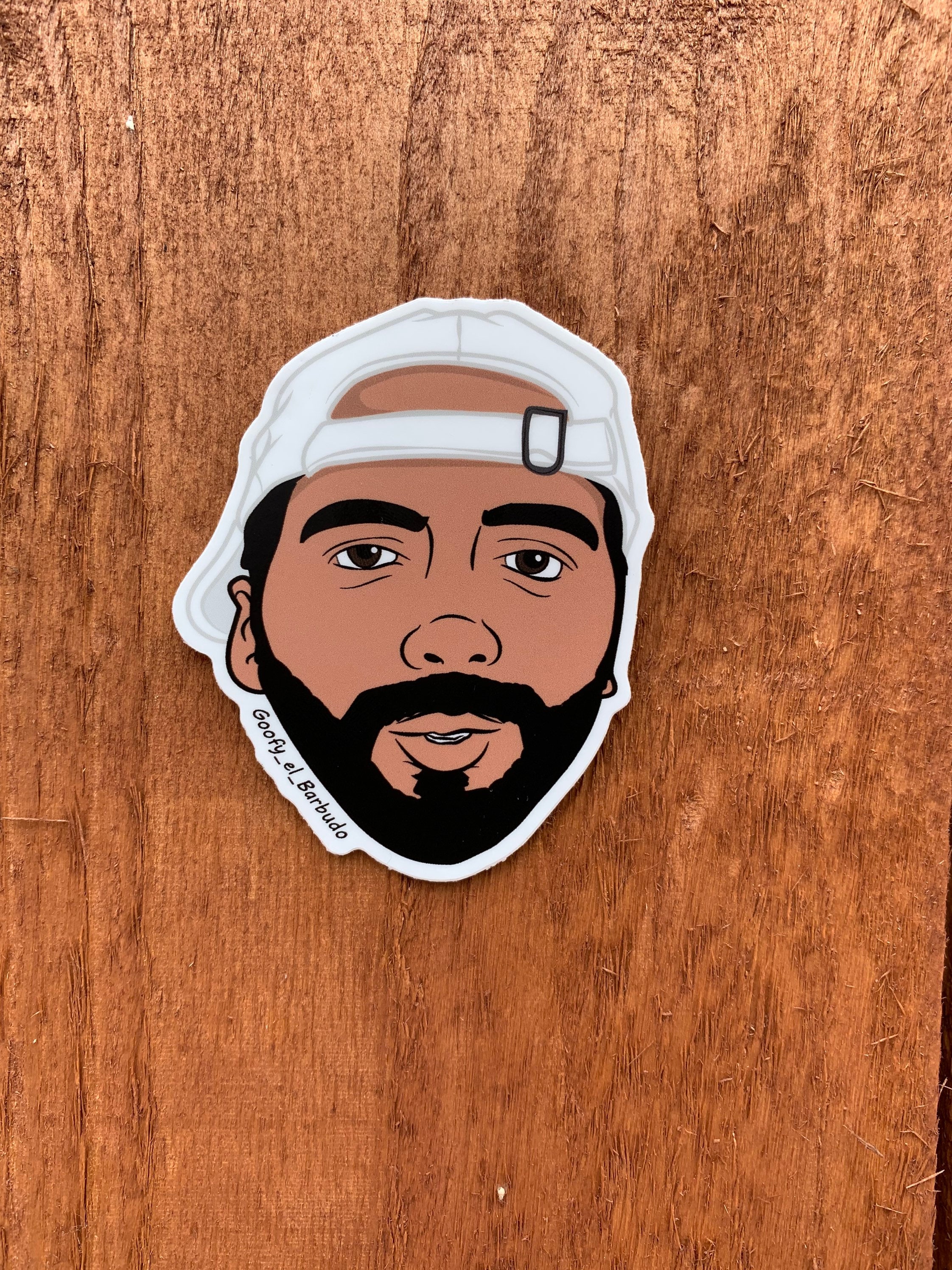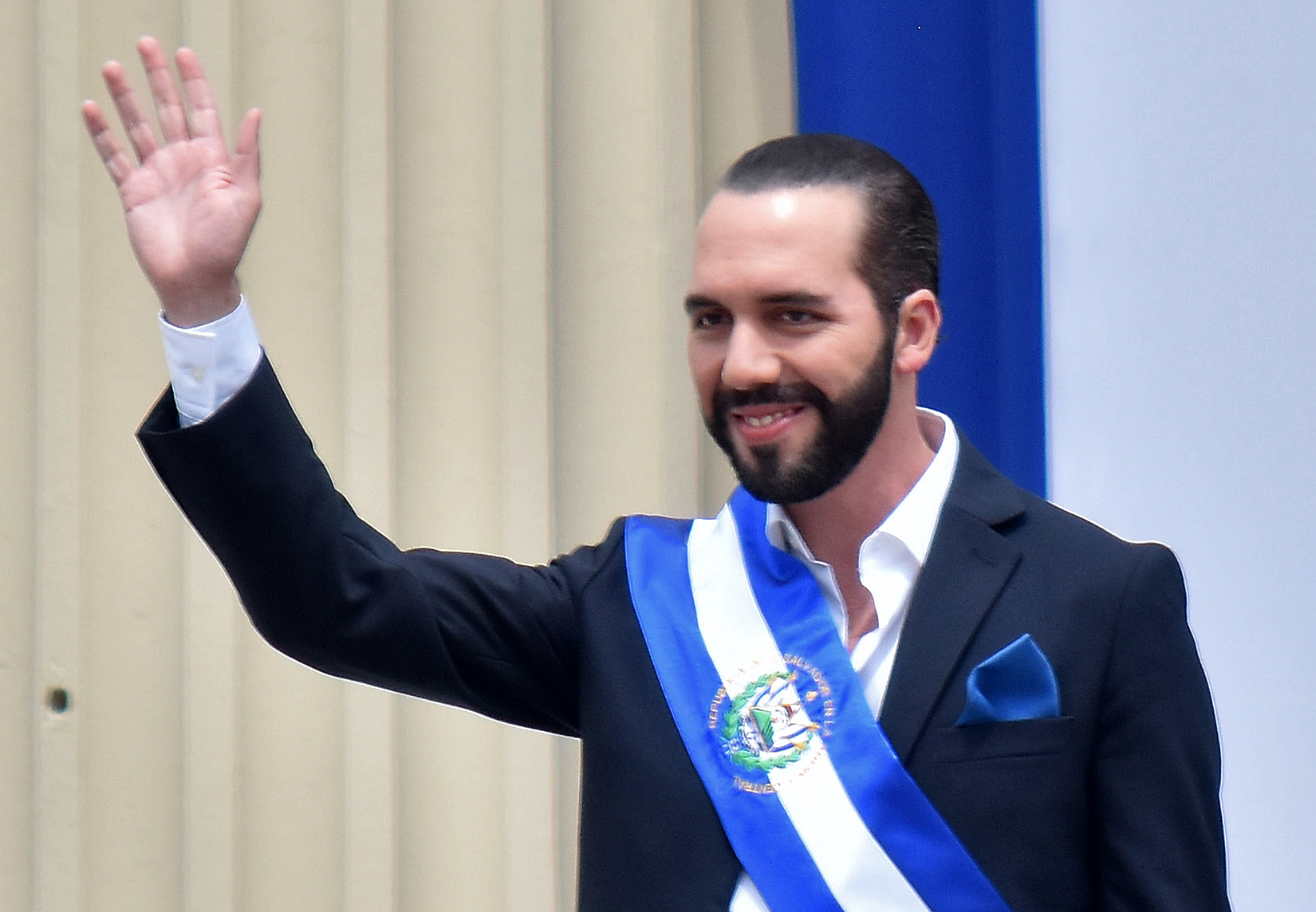Nayib Bukele, the charismatic leader of El Salvador, has captured global attention not just for his political decisions but also for his personal beliefs, including his religion. As the youngest president in the country's history, Bukele has positioned himself as a reformist, leveraging his unique approach to governance. While much is discussed about his policies, his religious affiliations and how they influence his leadership remain a topic of intrigue. In a predominantly Catholic nation like El Salvador, understanding Bukele's spiritual leanings provides valuable insights into his worldview and decision-making.
Born into a family of Palestinian descent, Nayib Bukele's religious identity is a blend of cultural heritage and personal faith. His family's roots trace back to Bethlehem, and this connection to the Middle East has shaped his identity in more ways than one. While he identifies as a Christian, his interpretation of faith is often seen as unconventional compared to traditional Salvadoran norms. This duality—rooted in his heritage and his modern outlook—has sparked curiosity among both supporters and critics alike.
As we delve deeper into Nayib Bukele's religion, we uncover how his beliefs intersect with his political philosophy. From his public statements to his actions as a leader, Bukele's faith subtly influences his approach to governance, social reforms, and even international relations. This article aims to explore the nuances of his religious identity, shedding light on how it shapes his presidency and resonates with the people of El Salvador.
Read also:Showstopping Braids A Guide To Stunning Braided Hairstyles For Every Occasion
Table of Contents
- Biography of Nayib Bukele
- Personal Details and Bio Data
- What Defines Nayib Bukele's Religious Identity?
- How Does Nayib Bukele's Religion Influence His Politics?
- Nayib Bukele's Religion and His Palestinian Roots
- What Do People Think About Nayib Bukele's Faith?
- Are There Controversies Surrounding Nayib Bukele's Religious Beliefs?
- Conclusion: The Intersection of Faith and Leadership
Biography of Nayib Bukele
Nayib Armando Bukele Ortez was born on July 24, 1981, in San Salvador, El Salvador. He grew up in a family with deep Palestinian roots, as his grandparents emigrated from Bethlehem to El Salvador in the early 20th century. This multicultural background has played a significant role in shaping his identity and worldview. Bukele's early life was marked by exposure to both Salvadoran and Middle Eastern cultures, which later influenced his leadership style and decision-making.
Bukele's political career began in earnest when he joined the leftist Farabundo Martí National Liberation Front (FMLN). However, his unorthodox methods and clashes with party leadership led to his expulsion in 2017. Undeterred, he founded the New Ideas party, which positioned him as a centrist, anti-establishment candidate. His rise to prominence culminated in his election as the mayor of San Salvador in 2015, where he implemented innovative urban projects and gained widespread popularity. In 2019, he was elected President of El Salvador, becoming the youngest leader in the nation's history.
Throughout his career, Bukele has been known for his tech-savvy approach and emphasis on modernizing governance. He leveraged social media to connect with younger voters and introduced policies aimed at reducing crime and corruption. His presidency has been marked by bold initiatives, including the adoption of Bitcoin as legal tender, which has drawn both praise and criticism. Despite controversies, Bukele remains a polarizing yet influential figure in Salvadoran politics.
Personal Details and Bio Data
| Full Name | Nayib Armando Bukele Ortez |
|---|---|
| Date of Birth | July 24, 1981 |
| Place of Birth | San Salvador, El Salvador |
| Nationality | Salvadoran |
| Religion | Christian |
| Political Party | New Ideas (Nuevas Ideas) |
| Spouse | Gabriela de Bukele |
| Children | Two daughters |
| Education | Universidad Francisco Gavidia |
| Profession | Businessman, Politician |
What Defines Nayib Bukele's Religious Identity?
Nayib Bukele's religious identity is a fascinating blend of tradition and modernity. While he identifies as a Christian, his faith is not confined to the rigid structures often associated with Catholicism, the dominant religion in El Salvador. Instead, Bukele's approach to religion reflects a more personal and pragmatic interpretation. This individualistic stance has both intrigued and polarized those who follow his leadership.
One of the defining aspects of Bukele's religious identity is his emphasis on moral values over dogmatic adherence. He often speaks about the importance of integrity, compassion, and justice—principles that align with Christian teachings but are presented in a way that resonates with a broader audience. For instance, during his campaign and presidency, Bukele has framed his anti-corruption efforts as a moral crusade, appealing to the ethical foundations of faith without explicitly invoking religious doctrines.
Bukele's faith also intersects with his multicultural background. Growing up in a family with Palestinian Christian roots, he has been exposed to diverse religious traditions. This exposure has likely contributed to his inclusive and adaptive approach to spirituality. Unlike many Salvadoran politicians who align closely with the Catholic Church, Bukele maintains a more independent stance, often emphasizing unity and progress over sectarian divisions. His ability to navigate these complexities highlights a unique aspect of his leadership style.
Read also:Jason Beghe Acclaimed Actor With A Distinguished Career
How Does His Faith Compare to Traditional Salvadoran Beliefs?
In El Salvador, Catholicism has long been the dominant religious force, shaping cultural norms and political landscapes. Traditional Salvadoran beliefs are deeply rooted in Catholic rituals, saints, and festivals, which play a central role in community life. However, Nayib Bukele's approach to religion diverges from this conventional path, offering a more contemporary and less ritualistic interpretation of faith.
While many Salvadorans attend church regularly and participate in religious ceremonies, Bukele's public persona suggests a more private and introspective practice of Christianity. He rarely attends high-profile religious events or makes overtly religious statements, which sets him apart from other political figures in the region. Instead, his faith seems to manifest in his commitment to social reforms and his vision for a modernized El Salvador.
How Does Nayib Bukele's Religion Influence His Politics?
Religion and politics often intersect in Latin America, and Nayib Bukele's presidency is no exception. While he does not overtly use religious rhetoric in his speeches, his faith subtly informs his policy decisions and leadership style. For instance, his emphasis on combating corruption and crime can be seen as an extension of his moral convictions, which are likely influenced by his Christian beliefs. This alignment of faith and governance has allowed him to present himself as a leader committed to ethical leadership and societal transformation.
Bukele's approach to governance also reflects a pragmatic interpretation of religious values. Rather than relying on traditional alliances with the Catholic Church, he has positioned himself as a reformist who prioritizes results over religious endorsements. This strategy has resonated with younger, urban voters who are less influenced by traditional religious institutions and more focused on tangible improvements in their daily lives. For example, his ambitious plan to adopt Bitcoin as legal tender was framed as a way to empower marginalized communities, echoing themes of economic justice that align with Christian teachings.
Moreover, Bukele's religious identity has helped him navigate the complex cultural landscape of El Salvador. By emphasizing universal values such as compassion and integrity, he has been able to appeal to a broad spectrum of voters, regardless of their specific religious affiliations. This inclusive approach has allowed him to maintain a strong base of support while avoiding the pitfalls of sectarian politics. However, it has also drawn criticism from those who view his policies as inconsistent with traditional Christian teachings, particularly regarding human rights and democratic norms.
Is Nayib Bukele's Leadership Style Rooted in His Faith?
One could argue that Nayib Bukele's leadership style is deeply rooted in his personal interpretation of faith. His emphasis on innovation, accountability, and social justice reflects a modernized version of Christian ethics. Unlike leaders who rely on religious institutions for legitimacy, Bukele's approach is more introspective and action-oriented, focusing on delivering results that align with his moral compass.
Nayib Bukele's Religion and His Palestinian Roots
Nayib Bukele's religious identity is inseparable from his Palestinian heritage, which has profoundly influenced his worldview and leadership. His family's Christian roots in Bethlehem provide a unique lens through which to understand his faith and its role in shaping his presidency. While he identifies as a Christian, his Palestinian background has exposed him to a diverse array of religious traditions, fostering a more inclusive and adaptive approach to spirituality.
This multicultural heritage has allowed Bukele to bridge gaps between different communities in El Salvador. For instance, his emphasis on unity and progress often resonates with both Catholic and Protestant voters, as well as those from non-Christian backgrounds. By drawing on his Palestinian roots, Bukele has been able to present himself as a leader who values diversity and inclusivity, qualities that are deeply embedded in his religious identity.
Furthermore, Bukele's Palestinian heritage has shaped his perspective on global issues, including social justice and economic empowerment. His policies, such as the adoption of Bitcoin and anti-corruption initiatives, reflect a commitment to uplifting marginalized communities—values that align with both his faith and his cultural background. This intersection of religion and heritage underscores the complexity of his identity and its impact on his leadership.
How Does His Heritage Shape His Religious Beliefs?
Bukele's Palestinian Christian roots have instilled in him a sense of resilience and adaptability, qualities that are evident in both his faith and his political career. His ability to navigate diverse cultural and religious landscapes has allowed him to craft a unique leadership style that prioritizes inclusivity and progress.
What Do People Think About Nayib Bukele's Faith?
Public perception of Nayib Bukele's religion is as varied as the political landscape of El Salvador itself. While some view his faith as a guiding force behind his progressive policies, others criticize him for not aligning closely enough with traditional religious institutions. Supporters often highlight his emphasis on moral values and social justice, seeing his faith as a positive influence on his leadership. Critics, however, argue that his policies sometimes contradict Christian teachings, particularly regarding democratic norms and human rights.
Younger Salvadorans, in particular, seem to resonate with Bukele's modernized interpretation of faith. His focus on innovation and results over religious endorsements has helped him build a strong base of support among urban voters who prioritize tangible improvements in their lives. This demographic shift reflects a broader trend in Latin America, where younger generations are increasingly moving away from traditional religious affiliations.
Despite these differing opinions, Bukele's faith remains a central yet understated aspect of his public persona. By maintaining a private and pragmatic approach to religion, he has managed to appeal to a wide range of voters while avoiding the polarization often associated with overtly religious leaders. This balance has allowed him to position himself as a unifying figure in a deeply divided nation.
Are There Controversies Surrounding Nayib Bukele's Religious Beliefs?
While Nayib Bukele's religion is not the focal point of his presidency, it has occasionally sparked controversies and debates. Critics have questioned whether his policies align with traditional Christian teachings, particularly regarding his handling of democratic institutions and human rights. For instance, his decision to deploy the military to enforce COVID-19 lockdowns was seen by some as an overreach of power, raising concerns about the ethical implications of such actions.
Additionally, Bukele's pragmatic approach to faith has drawn criticism from religious conservatives who expect more overt displays of religiosity from their leaders. His reluctance to engage with traditional religious institutions has led some to question whether his policies are truly guided by Christian values or merely a reflection of political expedi

